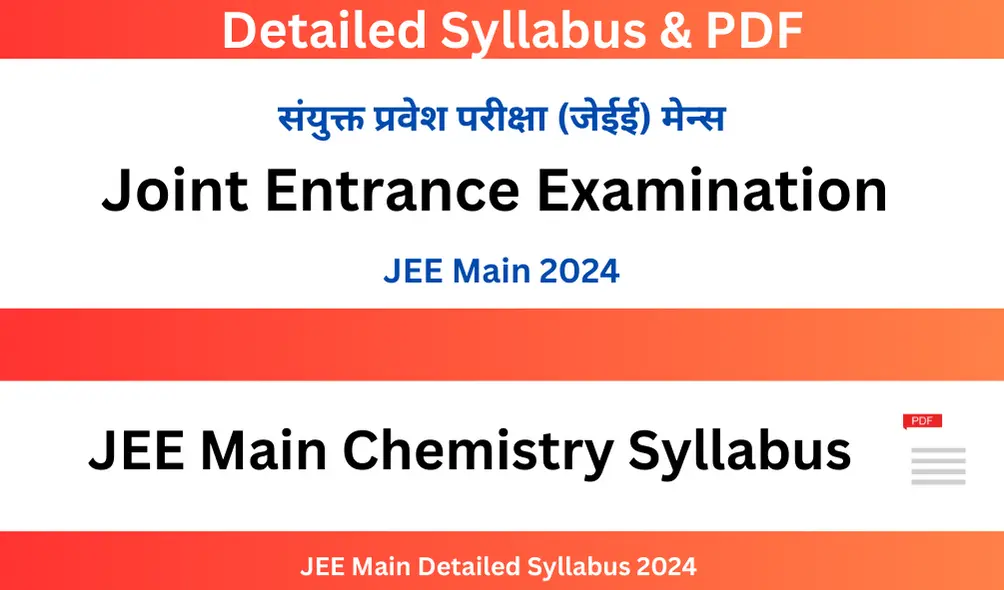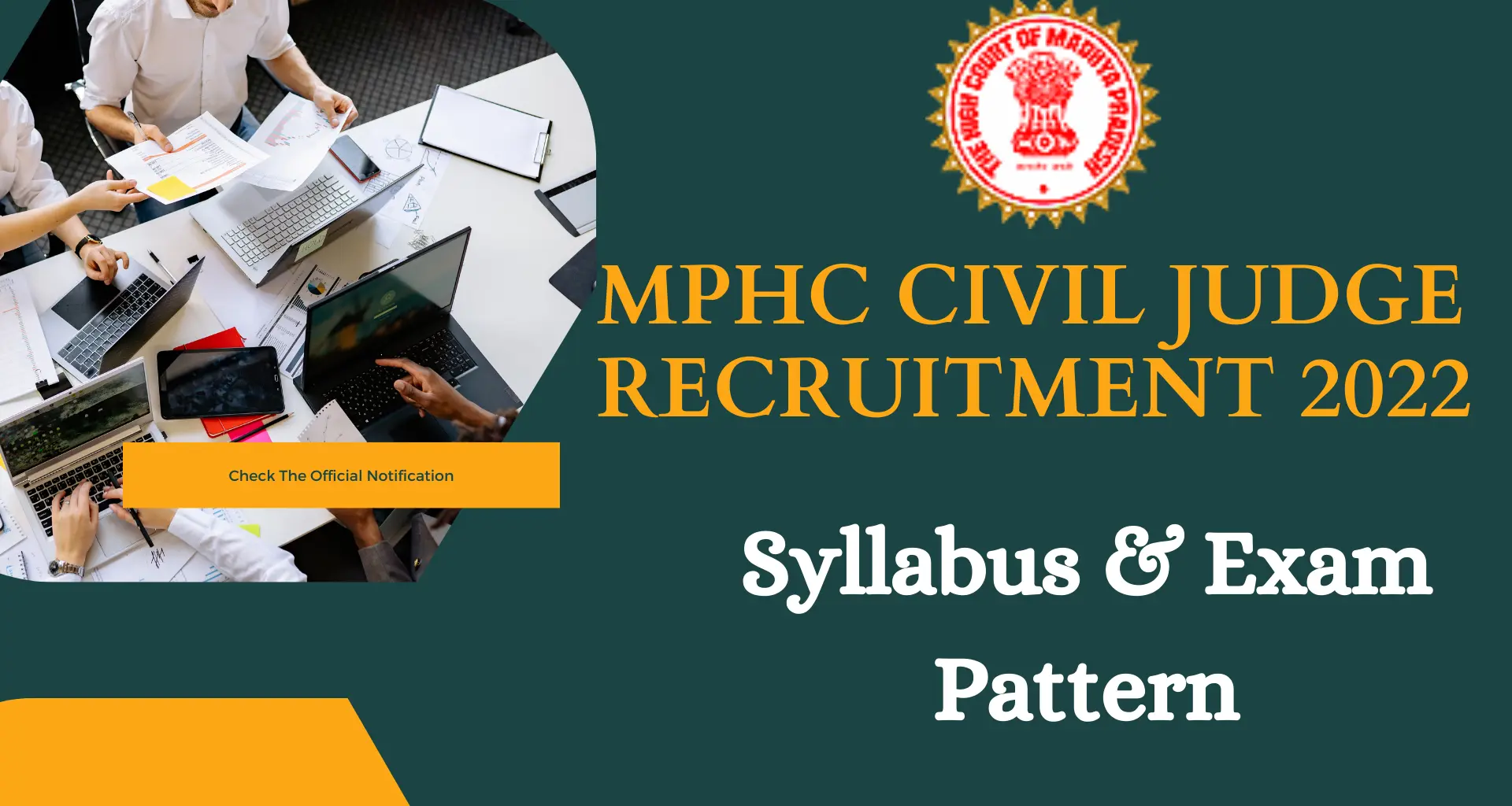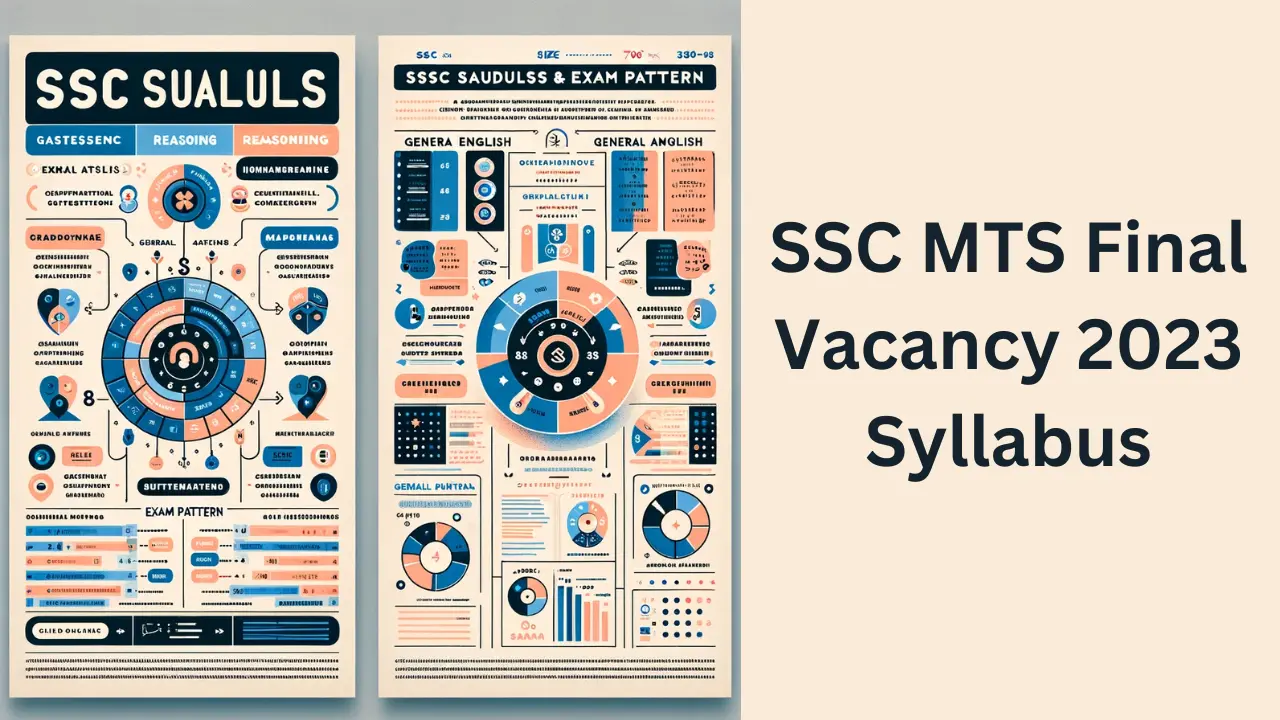The Joint Entrance Examination (JEE) Main is a critical examination for candidates seeking admission to engineering institutes throughout India. Chemistry, as one of the core disciplines of the JEE Main, necessitates a thorough understanding and preparation. Based on historical patterns and conventional themes, here’s a complete overview to what the Chemistry syllabus for JEE Main 2024 would comprise.
Chemistry in JEE Main 2024 Overview
Chemistry is divided across three major sections of JEE Main: Physical Chemistry, Organic Chemistry, and Inorganic Chemistry. Each of these divisions has its own significance and collection of topics that applicants must learn.
Physical Chemistry
Unit 1: Some Basic Concepts In Chemistry
- Matter: Definition and Nature
- Dalton’s Atomic Theory: Atoms, Molecules, Elements, Compounds
- Laws of Chemical Combination
- Atomic and Molecular Masses
- Mole Concept and Molar Mass
- Percentage Composition
- Empirical and Molecular Formulae
- Chemical Equations and Stoichiometry
Unit 2: Atomic Structure
- Electromagnetic Radiation
- Photoelectric Effect
- Hydrogen Spectrum
- Bohr Model of Hydrogen Atom
- Postulates
- Energy and Orbit Radii Derivations
- Limitations
- Matter Duality and de Broglie’s Relationship
- Heisenberg Uncertainty Principle
- Quantum Mechanics Basics
- Quantum Mechanical Model of Atom
- Atomic Orbitals and Quantum Numbers
- Electron Spin and Spin Quantum Number
- Electron Configuration Rules
Unit 3: Chemical Bonding And Molecular Structure
- Kossel Lewis Theory of Chemical Bonding
- Ionic Bonding
- Formation and Factors Affecting Ionic Bonds
- Lattice Enthalpy
- Covalent Bonding
- Electronegativity and Fajan’s Rule
- Dipole Moment
- VSEPR Theory
- Quantum Mechanical Approach to Covalent Bonding
- Valence Bond Theory
- Hybridization
- Resonance
- Molecular Orbital Theory
- Metallic Bonding
- Hydrogen Bonding
Unit 4: Chemical Thermodynamics
- Thermodynamics Fundamentals
- First Law of Thermodynamics
- Hess’s Law and Enthalpies
- Second Law of Thermodynamics
- Spontaneity and Gibbs Energy
Unit 5: Solutions
- Concentration Measures
- Vapour Pressure and Raoult’s Law
- Colligative Properties
- Molecular Mass Determination
- Van’t Hoff Factor
Unit 6: Equilibrium
- Equilibrium Concepts
- Physical Process Equilibria
- Chemical Process Equilibria
- Le Chatelier’s Principle
- Ionic Equilibrium
- Buffer Solutions
Unit 7: Redox Reactions And Electrochemistry
- Oxidation Reduction Concepts
- Redox Reaction Balancing
- Electrolytic and Metallic Conduction
- Electrochemical Cells
- Nernst Equation
- Fuel Cells
Unit 8: Chemical Kinetics
- Reaction Rates
- Rate Laws
- Temperature Effects on Reaction Rates
- Arrhenius Theory
- Collision Theory
Inorganic Chemistry
Unit 9: Classification Of Elements And Periodicity In Properties
- Periodic Table and Periodicity
- Periodic Trends
Unit 10: P- Block Elements
- General Trends and Properties
- Unique Behavior of First Elements
Unit 11: D – And F- Block Elements
- Transition Elements
- Lanthanoids and Actinoids
Unit 12: Co-Ordination Compounds
- Introduction and Werner’s Theory
- Nomenclature and Isomerism
- Bonding Theories
- Applications
Organic Chemistry
Unit 13: Purification And Characterisation Of Organic Compounds
- Purification Techniques
- Qualitative and Quantitative Analysis
- Empirical and Molecular Formula Calculations
Unit 14: Some Basic Principles Of Organic Chemistry
- Tetravalency of Carbon
- Functional Groups
- Isomerism
- Nomenclature
- Electronic Displacement in Bonds
- Types of Organic Reactions
Unit 15: Hydrocarbons
- Classification and Isomerism
- Alkanes, Alkenes, Alkynes
- Aromatic Hydrocarbons
Unit 16: Organic Compounds Containing Halogens
- Preparation, Properties, and Reactions
- Environmental Effects
Unit 17: Organic Compounds Containing Oxygen
- Alcohols, Phenols, and Ethers
- Aldehydes and Ketones
- Carboxylic Acids
Unit 18: Organic Compounds Containing Nitrogen
- Amines and Diazonium Salts
Unit 19: Biomolecules
- Carbohydrates
- Proteins
- Vitamins
- Nucleic Acids
- Hormones
Unit 20: Principles Related To Practical Chemistry
- Detection of Elements and Functional Groups
- Preparation of Inorganic and Organic Compounds
- Titrimetric Exercises
- Qualitative Salt Analysis
- Experiments in Chemical Kinetics
Download PDF
Conclusion
While the specific syllabus for JEE Main Chemistry 2024 has yet to be revealed, the framework provided above serves as a starting point for students to begin their preparation. It is critical to keep up with the newest information by visiting the official NTA and CBSE websites.





